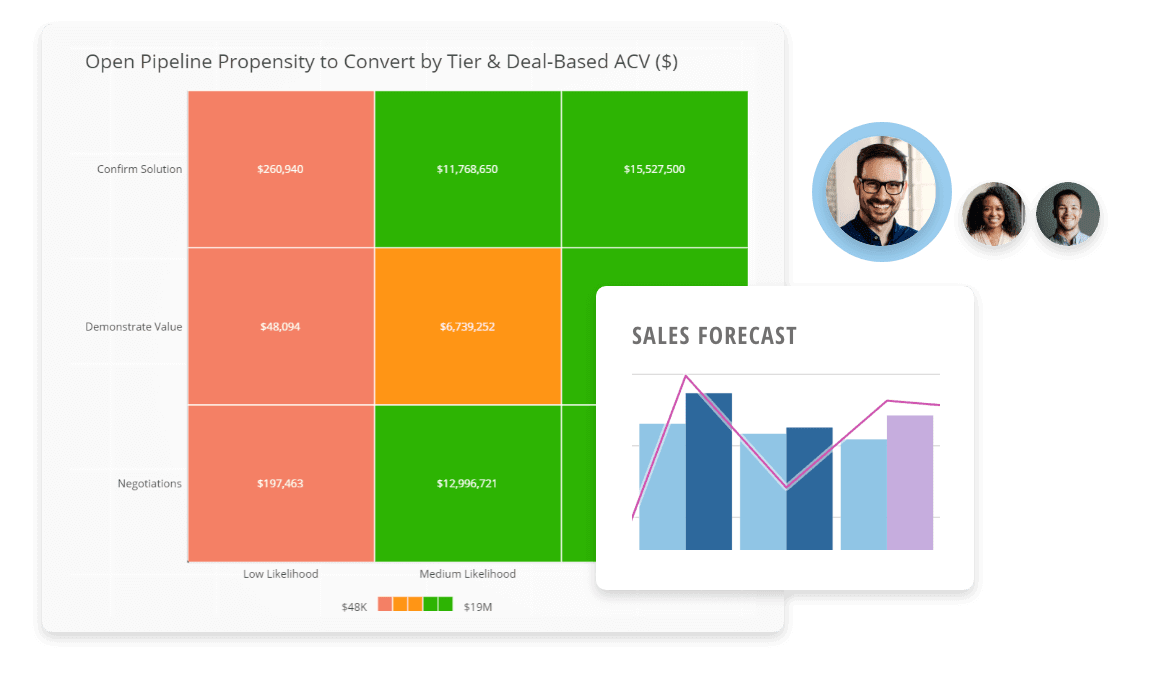What is artificial intelligence?
Artificial intelligence or AI is a broad definition for when machines use algorithms to autonomously “think” the way that humans do. Anytime a software is capable of making a decision that would typically require a human level of judgment and expertise, it can be considered AI.

AI algorithms are created to make decisions. That’s why enterprises of all sizes are looking for ways to incorporate AI into their businesses. Business requires constant and quick decision making to adapt to challenges and deliver quality experiences. While standard machines give mechanical or programmed responses to situations, AI uses data inputs to gather information from many different sources, analyzes it, and acts responsively to what it has “learned.”
Artificial intelligence has come a long way. What started as simple speculation in the 1950s about the possibility of machines that could think, is now significantly changing how enterprises work each day. Improved data storage, faster data processing, and more advanced analytics have made AI algorithms more and more sophisticated.
Why is artificial intelligence important for the enterprise?
AI is notorious for being developed in a silo. Data science teams often build the machine learning models that power artificial intelligence systems on local machines using flat CSB files. That means they aren’t building dashboards or other methods for sharing insights based off of those models. This makes it very difficult for the different areas of an enterprise to get appropriate exposure to AI-powered insights.
That’s where tools like Domo come into play. Domo provides best-in-class, customized front-end interfaces that make it possible for everyone in the enterprise–from the CEO all the way to frontline workers–to have self-service access to AI results and systems. They can then apply that information to automate workflows and inform decisions. All this happens without taking away the robust tools that data scientists and machine learning engineers need to develop models in the first place. And, with Domo, enterprises can build in monitoring to show how AI models are performing over time.

The time is quickly approaching where AI will no longer be an optional tool. Enterprises need artificial intelligence to help them make the most of the large volumes of data that they are collecting every day. And, AI can fill in the technical knowledge gaps that naturally exist when not every employee is a data expert. It can automate processes and complete tasks in minutes that would normally take humans hours.
With artificial intelligence, enterprises can be more efficient, discover new insights, dive into untapped markets, and cut costs.
How does AI work in an enterprise?
Artificial intelligence mimics the way humans think by focusing on three areas of thought: learning, reasoning, and self-correction.
Learning.
When data scientists talk about learning in AI, they are focusing on the process of gathering data and developing rules for how to turn that data into useful insights. Those rules are called algorithms. Algorithms give specific, sequential instructions to machines and computers for completing tasks.
Reasoning.
Reasoning refers to the ability of artificial intelligence systems to select the right algorithm to use for particular situations. Reasoning relies on the context of situations and data sets.
Self-correction.
When data scientists use the term self-correction, they mean the ability for AI to continually adapt and improve systems until the results reach a predetermined goal.
Using learning, reasoning, and self-correction, AI can classify data, recognize patterns, make predictions, and automate tasks.
How do enterprises use AI?
AI can be used in so many ways in the modern enterprise, but those applications can be broken down into two main uses: automation and augmentation.

Automation.
Artificial intelligence takes automation to the next level of agility and efficiency. When AI algorithms analyze large data sets, they don’t just do work that would take humans much longer with a higher risk for error–though that is certainly one benefit. They can also use that process to determine the most effective way to accomplish a specific task, and they can even be set up to adjust workflows according to those findings in real time.
Examples of AI automation include:
- Auto responders
- Online customer support chatbots
- Voice to text
- Spam filters
- Smart email categorization
- Pattern and image recognition
Augmentation.
There are many areas where AI doesn’t replace humans through automation but instead augments human abilities.
Examples of AI augmentation include:
- Product recommendations
- Security surveillance applications
- Speeding up and supporting loan processing
- Helping doctors narrow down potential medical diagnoses
- Facial recognition in law enforcement

Benefits of AI.
There are many benefits of using artificial intelligence in an enterprise. It can improve customer service through personalization and automated guidance for quicker service. It reduces errors and increases compliance, which cuts costs and boosts the quality of work. It can reduce the length of development cycles, getting products to market quicker for better ROI. It can even lead to better talent management by helping streamline hiring processes and identifying top candidates.
How will the use of AI in enterprises evolve in the future?
Soon, AI won’t be an optional tool for data. It will become a necessity. The complexity and scale of businesses’ internal and customer data will make it impossible to develop quality insights in a timely manner without the help of artificial intelligence. Smart enterprises will start using AI now to propel them to success in the future.
RELATED RESOURCES

blog
Crawl with analytics before running with artificial intelligence

Report
Domo Named a Leader in The Forrester Wave™: Augmented BI Platforms, Q3 2021

Report
Domo Named a Challenger in Gartner 2021 Magic Quadrant

Webinar